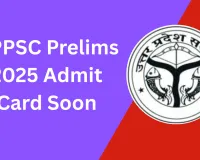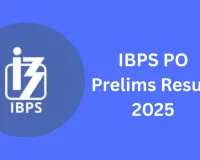Jobs of 5,500 College Guest Lecturers at Risk: UGC Demands Eligibility Compliance
Digital Desk

The livelihoods of over 5,500 college guest lecturers hang in the balance as the Karnataka government grapples with implementing strict University Grants Commission (UGC) eligibility requirements. In response to mounting pressure, the Higher Education Department has proposed giving these educators a three-year deadline to obtain necessary qualifications such as PhD or National Eligibility Test (NET)/Karnataka State Eligibility Test (KSET) credentials.
High Court Order Creates Crisis for Thousands
A recent High Court directive has mandated that only lecturers meeting UGC's minimum qualification standards can be appointed to teaching positions in government and aided colleges. This ruling has created unprecedented uncertainty for more than 5,500 guest lecturers currently working in Karnataka's 430 government first-grade colleges who do not possess the required PhD or NET/KSET qualifications.
The crisis has disrupted academic activities across the state, with students facing delays in full-fledged classes as the new semester approaches. Currently, there are approximately 11,000 lecturer posts in these institutions, with 9,000 guest lecturers appointed last year.
Humanitarian Approach Under Consideration
Government officials are examining this issue from multiple perspectives, balancing legal compliance with humanitarian concerns. "Many of them have been working for years for a small honorarium, but do not have the qualifications prescribed by UGC. We are trying to find a solution that is in keeping with the High Court's order," a Higher Education Department official explained.
The proposed three-year relaxation period would allow current guest lecturers to continue their service while pursuing the required qualifications. This approach aims to prevent sudden disruption to the teaching process that could affect thousands of students across the state.
Immediate Relief Measures Proposed
In addition to the three-year qualification window, discussions between the Higher Education and Law departments have also focused on extending guest lecturers' contracts for the current academic year. This temporary measure would provide immediate relief while the broader policy framework is finalized.
On September 29, 2025, the Karnataka government issued orders allowing guest lecturers who worked during the 2024-25 academic year to continue their service for the 2025-26 semester. Higher Education Minister MC Sudhakar approved these appointments, stating that if workload demands persist, those with UGC qualifications should be prioritized in keeping with court directives.
UGC Qualification Requirements
According to UGC regulations established in 2018, guest faculty appointments require candidates to possess either a PhD degree or have cleared NET/SET/KSET examinations. The regulations specify that candidates must have a Master's degree with at least 55% marks, with a 5% relaxation for SC/ST/OBC/PwD candidates.
Those holding PhD degrees awarded through proper admission, registration, coursework, and external evaluation processes are exempted from NET/SET requirements. The qualification standards for guest faculty mirror those prescribed for regular assistant professors in universities and colleges.
Financial and Academic Impact
The uncertainty has created significant challenges for both educators and institutions. Guest lecturers typically receive monthly honoraria ranging from Rs. 25,000 to Rs. 50,000, depending on their qualifications and experience. Many experienced educators with decades of teaching experience but lacking formal NET/PhD credentials face potential job loss.
The academic disruption extends to nearly 3 lakh undergraduate students across the state's government colleges. With examinations approaching, the shortage of qualified faculty has placed additional pressure on educational institutions to maintain academic standards while ensuring continuity.
Legal Complexities and Future Decisions
The situation remains complicated by ongoing court cases, with some decisions still sub judice. The government must navigate between complying with UGC norms, adhering to High Court orders, and addressing the practical realities faced by both lecturers and students.
The final decision on the three-year proposal awaits discussions with the Chief Minister. This decision will determine whether thousands of dedicated educators can retain their positions while working toward meeting the enhanced qualification requirements that aim to improve the overall quality of higher education in the state.
The government's consideration of this extended timeline represents a pragmatic attempt to balance educational quality standards with the legitimate concerns of experienced educators who have contributed significantly to Karnataka's higher education system.


8.png)

1.jpg)



.jpg)


